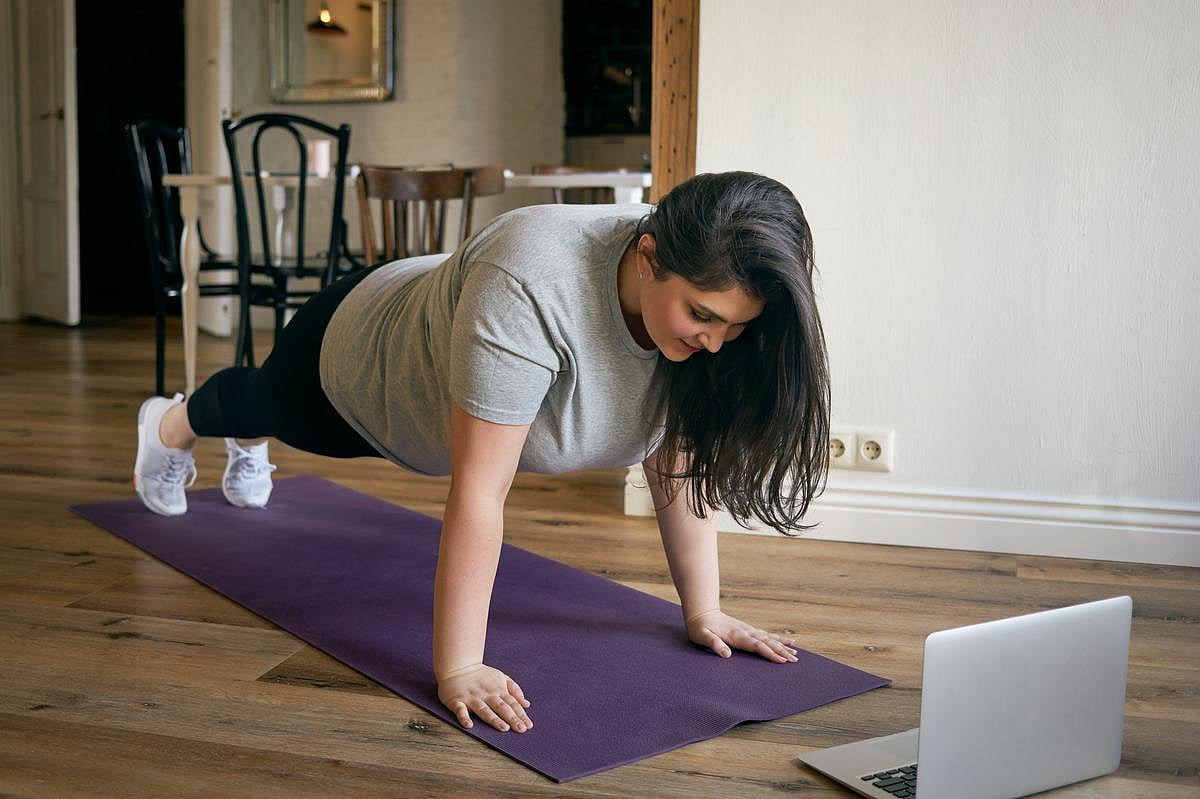Get Healthy!

- Carole Tanzer Miller
- Posted June 7, 2025
An Expert's Guide to Keeping Middle-Age Spread at Bay
You're not just getting older, you're probably getting bigger.
Between their 20s and 40s, most Americans can expect to put on 10 to 25 pounds — and after 30, exercise may not have the same payoff it once did.
It's not just you, but Mother Nature at work.
"Your metabolism tends to slow down as you get older, but your appetite and food intake do not," said Rafael de Cabo, an expert on aging at the National Institutes of Health (NIH). "So you have a steady increase of body weight with age."
Unfortunately, most of that gain is fat tissue, which settles around your internal organs, secreting chemicals that boost the risk for heart disease and diabetes.
At the same time, lean muscle begins to disappear, especially when folks become less active or spend most of their lives at a desk.
And this shift can lead to further muscle loss and fat gain, according to de Cabo, who studies the effects of diet changes on health and longevity.
So, as you get older, you'll have to make adjustments, de Cabo recently told NIH News in Health.
Here's what de Cabo recommended:
Eat right: With a slower metabolism, you need fewer calories, but still have to get the nutrients your body needs. A focus on nutrient-dense foods such as fresh veggies and fruit, seafood, lean meats, whole grains, eggs, legumes, nuts and seeds is essential.
Consider fasting now and then: Studies suggest intermittent fasting may help keep unwanted weight at bay. De Cabo said it may also benefit your metabolism. Try eating only eight hours a day, he suggested.
Hydrate: Drink plenty of liquids. (Guys need about 15.5 cups of fluid daily, and women need 11.5 cups, according to the U.S. National Academies of Sciences, Engineering and Medicine.)
Limit alcohol use and avoid tobacco products.
Get your zzzzzs: Adults need at least seven hours a night. (Stop using screens an hour before bedtime.)
Finally, staying active throughout the day will help a lot, de Cabo urged.
"Try to maintain an active lifestyle," he advised. "Try to incorporate daily walks or daily visits to the gym. If you have an office job, get a standup desk, so you spend a few hours a day standing instead of sitting."
More information
There's more about "middle-age spread" at Harvard Health.
SOURCE: NIH News in Health, October 2024





